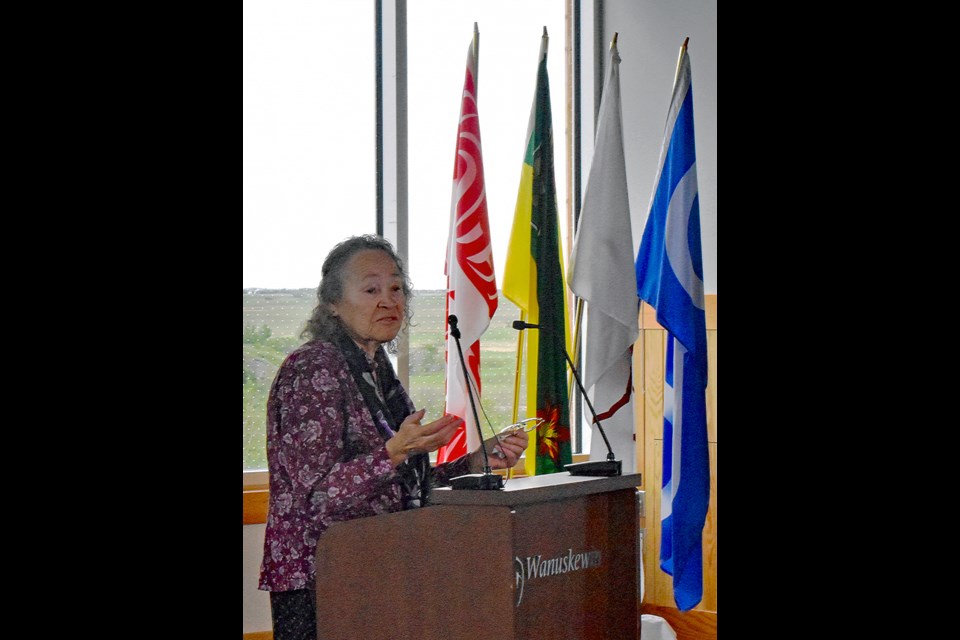WANUSKEWIN — Elder May Lee says she always finds comfort whenever she visits Wanuskewin Heritage Park. She feels energized after spending a few hours walking the trails at the Opimihaw Valley and catching up with the friendly staff, making the almost 20-minute drive out from the city truly worth it.
Wanuskewin comes from the Cree language, meaning being at peace with oneself. The land where the park is now located is a traditional gathering place of First Nations who came to hunt bison, and gather food and herbs 6,000 years ago based on studies and archaeological digs done by a group led by Dr. Ernie Walker.
“For us [Indigenous Peoples], I think it is voicing and walking in the land where our ancestors walked, repeating the teachings that they wanted to be shared on this land. [Wanuskewin] was a meeting place for the people where they share medicine and hold different ceremonies” Lee, a Cree woman from Pelican Lake, told SASKTODAY.
“It is special to us since there is a sense of feeling that when you come here, it gives you a quiet place, a place of harmony for people to come and sit. It is a place of healing and a place of rethinking. That’s what I do when I come here. I reset my day. Everything around here reminds us of our ancestors and we thank them for paving the way for us to come back here and walk where they once walked.”
She added that she used to bring students to Wanuskewin when she worked as a school Elder counsellor, especially those who are of Indigenous heritage, to let them reconnect with their roots and understand more about their culture.
Lee said that she used to walk the hills and valley even before the park was established and opened in 1992. She would see Walker and members of his archaeological team doing digs to look for items that are of cultural and historical significance to Indigenous people.
“I teach them [students] how to fast and about self-discipline while walking on the hills. We would be on the hills, not with one another but by yourself. It is very special for me since I’ve been here even before they were buildings. [Wanuskewin] is a powerful place for me to come back to and re-energize myself,” said Lee.
“To remember what was once here, where our ancestors once came and walked here. We can never go back to how they were, but we should never forget. That was my mother’s teaching. They were special, powerful and pure people before drugs and alcohol.”
She added the journey and stories of struggle of their ancestors should not be forgotten, as their language, teachings and ceremonies must be taught to the next generation to preserve their cultural heritage.
“You can hear voices when you walk through the [visitor centre] building. They are the knowledge keepers talking about different things that have been passed down to them. They are leaving us our language, which was a struggle for them.”
Lee said she teaches about the value of the teepee and the role and importance it plays in Indigenous culture, as an interest in learning about the history and culture of Indigenous Peoples increases.
“The teepee is a very powerful ceremony for us women. When you see a teepee standing that’s us women, where we stand with pride and dignity. But that was almost taken away from us. I’m sharing that here are Wanuskewin when people come and visit.”




